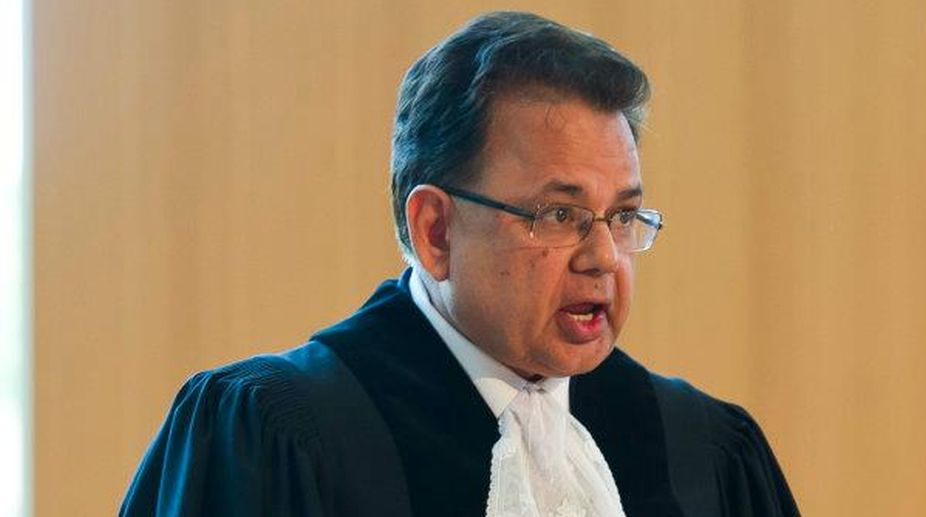The Indian Judge at the International Court of Justice (ICJ), Justice Dalveer Bhandari, on Thursday made a separate declaration as part of the court’s verdict in the Kulbhushan Jadhav case, observing that the basic human rights of the former Indian Navy officer had been violated by not allowing India to have consular access to him after his arrest and during the pendency of the criminal proceedings against him.
In the declaration appended to the court’s ruling, he starts by outlining the facts pertaining to India’s application instituting proceedings as well as India’s request for provisional measures. Subsequently, he discusses the four requirements for the indication of provisional measures: prima facie jurisdiction; plausibility; real and imminent risk of irreparable prejudice; and the link between the rights claimed on the merits and the provisional measures requested. Each requirement was examined in turn.
Advertisement
Concerning the facts of the case, Justice Bhandari underscores the uncertainty surrounding the circumstances in which Jadhav was arrested. He makes clear that the parties do not agree as to where Jadhav was arrested, whether within or outside Pakistan.
Justice Bhandari stresses the diplomatic exchanges between the parties relating to India’s consular rights with respect to Jadhav. Despite 13 Notes Verbale sent by India to Pakistan, Pakistan has not communicated to India either the charges against Jadhav, or the documents of the proceedings against him.
also outlines the court proceedings in order for Jadhav to obtain a revision of his death sentence or to be granted clemency. It is currently not clear whether any of these domestic remedies have been triggered by Jadhav himself, while it is known that his mother has filed, in an act of desperation, both for appeal and for clemency. Moreover, Judge Bhandari emphasises that Pakistan’s denial of consular access has determined a situation in which India has no direct knowledge of the charges against Jadhav, as well as of the proceedings against him in the Pakistani military court.









